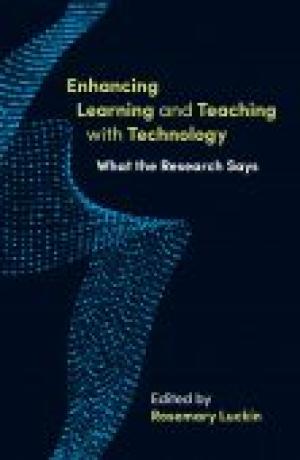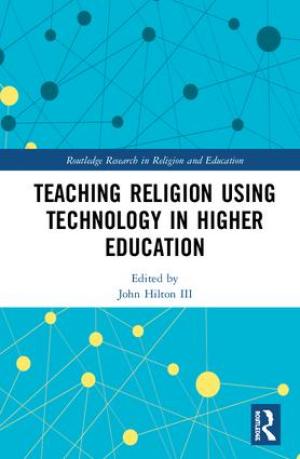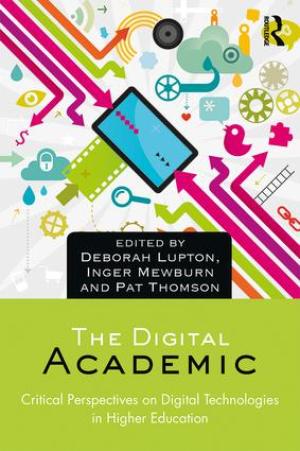Resources
Podcast Series. For over 15 years, veteran educator Matthew Lynch has written about and researched the field of education. On “The Edvocate Podcast,” he discusses education trends, issues, and futures.
The Edvocate was created in 2014 to argue for shifts in education policy and organization in order to enhance the quality of education and the opportunities for learning afforded to P-20 students in America. What we envisage may not be the most straightforward or the most conventional ideas. We call for a relatively radical and certainly quite comprehensive reorganization of American’s P-20 system. That reorganization, though, and the underlying effort, will have much to do with reviving the American education system, and reviving a national love of learning. The Edvocate plans to be one of key architects of this revival, as it continues to advocate for education reform, equity, and innovation.
This article presents a pedagogical approach to training seminarians for faith leadership in the era of what Heidi Campbell has called “networked religion.” It argues that the increasing digital mediation of religious practice, expression, and community represents an opportunity for students to explore and inhabit ministry sites and roles from “within” the seminary classroom. Using education scholars' discussions of new digital geographies, gaming scholars' conception of game space, and reflection on classroom‐tested “quick challenges,” the author presents pedagogical principles for designing authentic new media learning experiences. Such activities bridge teaching spaces and ministry spaces to promote active learning through observation and immersion, simulation and role‐playing.

Click Here for Book Review The educational technology sector is growing fast, with schools, colleges and universities more than ever looking for the best ways to use technology in the classroom. At the same time, there is an increasing appetite for learning and teaching practices to be backed up by evidence. However, there are few resources that bring these two things together. Enhancing Learning and Teaching with Technology brings together researchers, technologists and educators to discuss how technology can be designed and used for learning and teaching to best effect. It addresses what the research says about: - how and why learning happens and how different technologies can enhance it; - engaging a variety of learners through technology and helping them benefit from it; - and how technology can support teaching. The book is an accessible introduction to learning and teaching with technology for teachers and other educational professionals, regardless of their experience with using technology for education. (From the Publisher)
The issue is richly augmented by a set of teaching tactics (Allen, Ghosh, and Woodard and Mabry) across a range of religious traditions which briefly describe further practices that can be productive in the classroom.
Games offer unique possibilities for learning, and text‐based interactive fiction (“IF”) in particular lends itself as a low barrier to entry for instructors and students wishing to build interactive narrative games. Understanding by Design provides a framework by which to determine the best possible places for instructor‐ and learner‐built IF in any given course, whether face‐to‐face or online. A thick description of how an instructor conceived and developed two IF games follows, explicitly tied to course‐design considerations like learning goals and assessment performances. The value of IF as a student project is explored, and finally an appendix provides resources for instructors and students to begin building their own interactive fiction.

Click Here for Book Review This edited collection helps those teaching religion in higher education utilize technology to increase student learning both inside and outside of the classroom. Recent times have seen major technological shifts that have important implications for how religion is taught at a post-secondary level. Providing multiple perspectives on a range of topics—including social media use and interactive classroom learning —this book presents a series of original case studies and insights on how technology can be used in religion classes in higher education to improve student learning. (From the Publisher)
The advent of relatively inexpensive 360‚Äêdegree cameras and virtual reality (VR) headsets brings new possibilities to the study of religion by allowing students to become virtually immersed in distant religious environments at very little cost. These tools can serve as the basis for assignments that help to engage students and meet core learning outcomes such as empathetic understanding and ethnographic analysis of religious place, ritual, and behavior in light of theories of religion. This article describes and reflects on the experimental incorporation of these technologies in two sections of an introductory religious studies course at a small two‚Äêyear campus in the University of Wisconsin System.

Academic work, like many other professional occupations, has increasingly become digitised. This book brings together leading scholars who examine the impacts, possibilities, politics and drawbacks of working in the contemporary university, using digital technologies. Contributors take a critical perspective in identifying the implications of digitisation for the future of higher education, academic publishing protocols and platforms and academic employment conditions, the ways in which academics engage in their everyday work and as public scholars and relationships with students and other academics. The book includes accounts of using digital media and technologies as part of academic practice across teaching, research administration and scholarship endeavours, as well as theoretical perspectives. The contributors span the spectrum of early to established career academics and are based in education, research administration, sociology, digital humanities, media and communication.(From the Publisher)